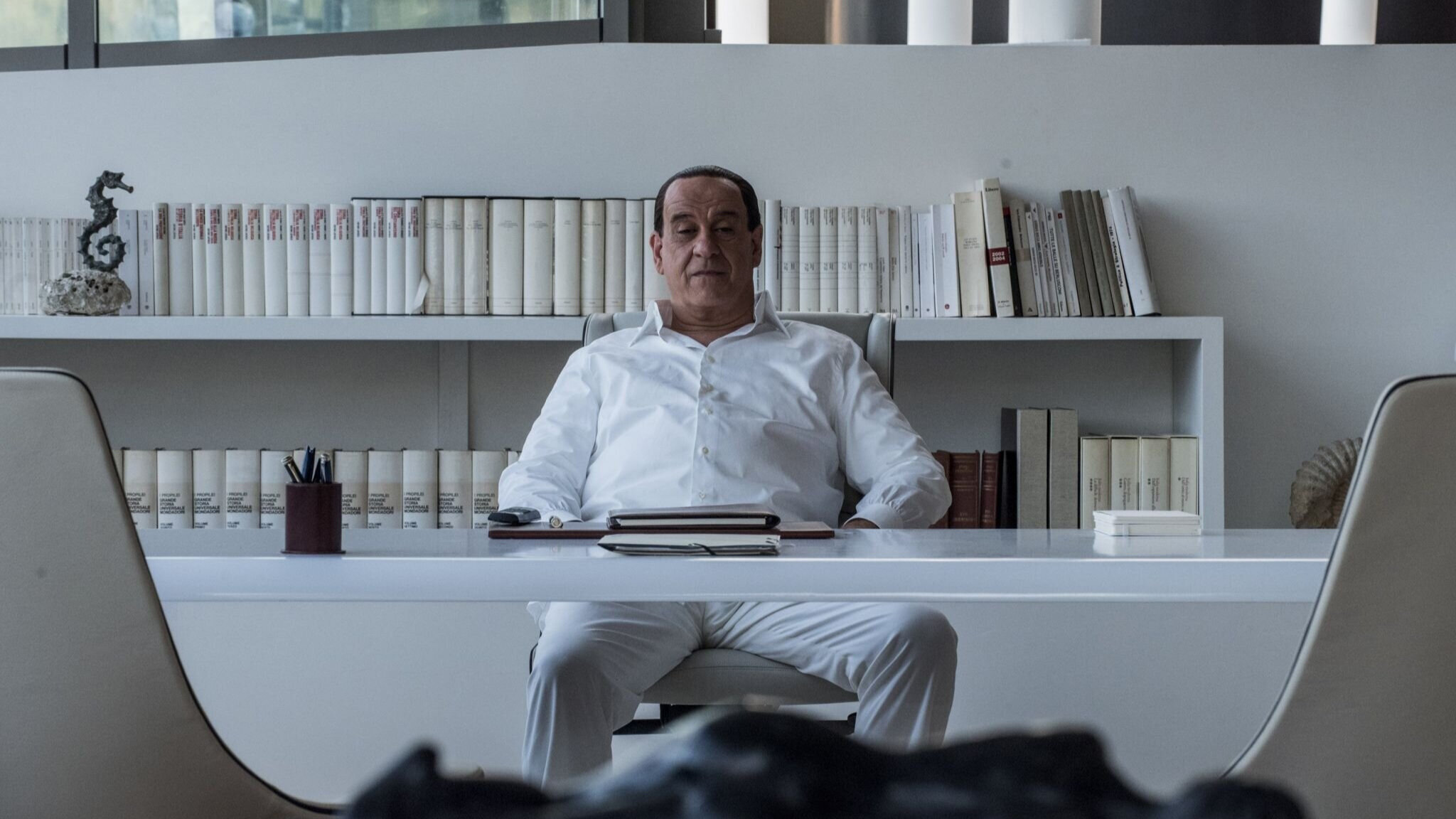Loro
A view of Italian society today as reflected in the world of Silvio Berlusconi.
Toni Servillo
Although there was earlier work of interest from Paolo Sorrentino, in my eyes it was Il Divo of 2008 that established him as a leading Italian director. Since then my views on his work have sometimes been out of sync with my fellow critics: I admired the much-criticised This Must Be the Place (2011) but found the highly praised 2013 piece The Great Beauty pretentious and boring. I was happier with Youth (2015) and now we have Loro, a film about Silvio Berlusconi, which started life as a two-part project but reaches the UK as a single movie lasting some 151 minutes. This time around I am split: I can find much to praise but just as much to criticise.
On the surface, Loro is magnificent in that it has superlative colour photography by Luca Bigazzi and an innate sense of cinema (this could only be the work of a filmmaker who knows his craft inside out). These qualities help to sustain the considerable running length but do not hide the fact that Loro, co-written by Sorrentino and Umberto Contarello, feels decidedly self-indulgent.
Earlier this year we had a take on Dick Cheney (the brilliant but underrated Vice) which echoed reality but adopted a stylised approach that was remarkably imaginative. Despite the truths that inspired it, Loro starts out with statements about it being a fantasy work of artistic imagination. That suggests that these two films are to some extent companion pieces, and there is some truth in that if one also allows for Loro being an Italian piece which wears the mantle of Fellini (a line of dialogue actually includes the phrase 'la dolce vita' and almost at the close a scene featuring a statue of Christ being raised out of a ruined church again brings Fellini to mind).
Nevertheless, the film closest to Loro is Martin Scorsese's The Wolf of Wall Street. Both films are technically accomplished to a degree but unsatisfactory in the way that they indulge what they criticise, a case of having your cake and eating it. Here we see how, in order to get in with the 70-year-old Berlusconi now living in Sardinia, the opportunistic Sergio Morra (Riccardo Scamarcio) buys a nearby villa and fills it with nubile girls guaranteed to attract Berlusconi's attention - a certain move despite the man's age and the presence in his house of his wife Veronica (Elena Sofia Ricci). Not least in its early scenes Loro, which takes a long time to introduce Berlusconi himself, features much high life with drug taking and an endless emphasis on bare female breasts. Having established all that as part of Berlusconi's life-style in a manner thoroughly indulgent of it, Sorrentino offers us towards the close two scenes which put him down - one involves a young actress (Alice Pagani) who rejects his advances in an episode that is less than wholly persuasive and the other, far better written, shows Veronica castigating him.
That confrontation, providing a second climax after a visual one involving an earthquake, could well have ended the film, but in fact it goes on beyond that. Indeed, ultimately the film's view of Berlusconi seems rather more complex than one might expect, while the movie itself both attracts and repels. However, Sorrentino has an ace in his pack: while we may deplore many of the characters seen on screen, Berlusconi himself is given very engaging dialogue and to play him we have the great Toni Servillo who, as magnetic as ever, knows exactly how to make the words in a Sorrentino movie fit him like a glove.
MANSEL STIMPSON
Cast: Toni Servillo, Elena Sofia Ricci, Riccardo Scamarcio, Alice Pagani, Kasia Smutniak, Euridice Axen, Fabrizio Bentivoglio, Roberto De Francesco, Dario Cantarelli, Anna Bonaiuto, Giovanni Esposito.
Dir Paolo Sorrentino, Pro Nicola Giuliano, Francesca Cima, Carlotta Calori and Viola Prestieri, Screenplay Paolo Sorrentino and Umberto Contarello, from a story by Paolo Sorrentino, Ph Luca Bigazzi, Art Dir Stefania Cella, Ed Cristiano Travaglioli, Music Lele Marchitelli, Costumes Carlo Poggioli.
Focus Features/Indigo Film/Pathé/France 2 Cinéma-Curzon Artificial Eye.
151 mins. Italy/France/USA. 2018. Rel: 19 April 2019. Cert. 18.


